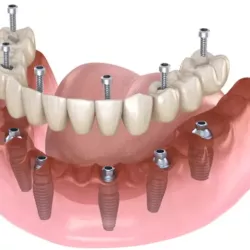Decentralized Exchanges (DEXs): What You Need to Know

We all know that bitcoin and other cryptocurrencies have become a hot topic in recent years. Almost everyday we can hear news about cryptocurrency and the blockchain technology. New startups related to crypto band blockchain are being created at a very fast speed.
Among the many applications of the blockchain technology, one that has been getting a lot of attention recently is the concept of decentralized exchanges, or in short, DEXs.
What is a decentralized exchange? Well, to answer this question, first we need to understand how traditional exchanges work.
Most cryptocurrency exchanges we know, for example, CoinBase, Bitfinex and Binance, etc. are centralized exchanges. When you open an account, you need to upload your personal information (passport copies, utility bills etc.) as part of the KYC (Know Your Customer) process. Before you can trade at a centralized exchange, you also need to send your money (for example, USD) or cryptocurrency (for example, Bitcoin and Ethereum) to a dedicated account that belongs to the exchange.
In other words, centralized exchanges will hold your funds. This could be a problem. Before centralized exchanges are big targets for hackers. They are trying to find ways to break into the exchanges and steal people's money. Once they are successful in doing that, they can take a big amount of cryptocurrency away. Once customers' cryptocurrency gets stolen, it'd be very hard for the centralized exchange to get them back. As a result, their customer might lose big.
On the other hand, decentralized exchanges (DEXs) work differently.
Most DEXs use smart contracts to do trading. Smart contracts are software program hosted by blockchains such as Ethereum. Smart contracts are open sources and reliable. As a result, many DEXs do not need to ask their customers to deposit money or cryptocurrency to the exchange. When customers are trading, the cryptocurrencies or tokens involved will be exchanged by the smart contract and the exchange can happen directly between traders' crypto wallets directly without the third-party temporarily holding them.
Before of this feature, trading on a non-custodial decentralized exchange is much safer than trading at a centralized exchange.
There're many flavors of decentralized exchanges, for example, the 0x protocol, the Kyber Network, Airswap, IDEX, EtherDelta etc. Different DEXs usually work differently and have different focuses. For example, LedgerDex, a DEX based on the 0x protocol, allows users to add and trade any ERC20 tokens without the lengthy process of asking the exchange to add new tokens.
One should know that DEX is still a relatively new technology. Compared to centralized exchanges, DEX also has some drawbacks.
Since DEX rely on blockchains to execute trades, the speed of blockchain transaction often affect the speed of trading. The Ethereum blockchain recently get congested and become slow quite often. When this happens, trading on a DEX can be slower.
Also, currently the liquidity of DEXs is usually not as high as that of the centralized exchanges. Although it's easier to get started trading on a DEX, sometimes you won't be able to successfully finish a trade before there're not many traders trading with you.
However, one should realize that DEX is a new technology. Just as any new technology, it takes time for it to grow and become faster, more reliable and more useful. Many people believe that decentralization is the key thing for the future world, and decentralized exchanges might eventually become really big and popular and they might even replace our current centralized exchanges.
More to Read:
Previous Posts:


